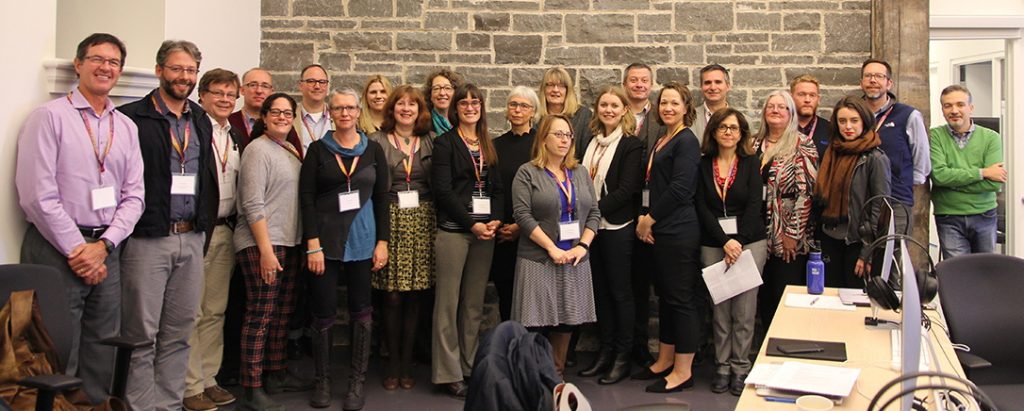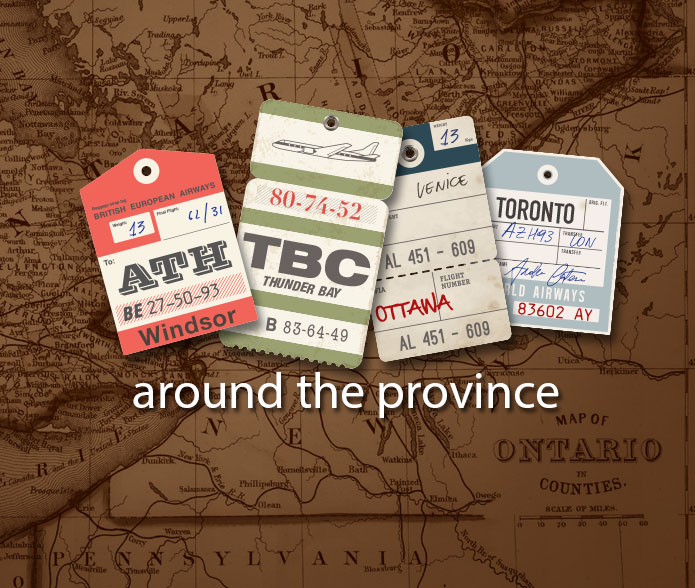Learn about the benefits of constructing a multi-year internship from a MLIS student's perspective.

Matariki Digital Humanities Colloquium: Research and the Curriculum
Academic libraries are often said to be at the heart of the campus. Today, we’re also at the heart of the global campus. As our institutions emphasize the openness of diversity and internationalization, what could be more essential to these perspectives than our collaborative leadership in global information access?
The digital realm has greatly advanced these international connections. It has also opened up new opportunities and new questions for scholarship. This is apparent in all fields, but perhaps nowhere more so than in the humanities. When the scholarship of the human condition embraces digital technologies, how is that human activity itself altered? Or, moving from the philosophical to the practical, what research possibilities are arising for humanities scholars in our digital world?
These themes of internationalization and digital humanities converged this fall at the Matariki Digital Humanities Colloquium: Research and the Curriculum, hosted by Queen’s University on behalf of the Matariki Network of Universities (MNU).
The MNU is a group of institutions from seven different countries. Each of the institutions is among the most historic in its country and is recognized equally for its research excellence and student learning experience. The members also have in common their physical locales: they are situated in relatively small towns rather than large international cities, and they place a high value on the “town-gown” relationship. At the same time, they have significant internationalization aspirations. Essentially, these institutions are working together to develop international excellence in research and education and to promote social responsibility both locally and globally.
The MNU members are Dartmouth College (USA), Durham University (England), Queen’s University (Canada), University of Otago (New Zealand), University of Tübingen (Germany), University of Western Australia (Australia) and Uppsala University (Sweden). Matariki is the Māori name for the Pleiades star cluster, also known as the Seven Sisters.
Representatives from six of the seven Matariki partners came together to explore digital scholarship in the humanities at the colloquium held at Queen’s on October 24 and 25, 2016. As well as representing their institutions, the participants also reflected a cross-section of roles, including senior research administrators, faculty, librarians, educational technologists, post-doctoral fellows and graduate students.

The colloquium topics were wide-ranging. The digital humanities curriculum was a major focus, from undergraduate courses to a broadly scoped certificate spanning object-based as well as text-based disciplines. Research topics included:
- development of a tool for tracking, quantifying, and visualizing individual contributions to the research narratives of large, collaborative projects;
- digital recording, analysis and presentation techniques in archaeology;
- an online documentary project enabling international audiences access to a space that is physically or psychologically inaccessible; and
- the archaeometric analysis of a set of Greek and Roman coins and a related database that is making the collection available to the world.
The intersection of research and learning was evident in multiple presentations, from the classroom use of digital corpora for engaged learning activities, to the ethical and methodological differences between digital learning and embodied learning.
Thinking at an institutional level, we discussed the development of a coordinated digital humanities presence at a university and the importance of considering the particular strengths of that organization and the kinds of resources available. We looked at the library’s collaborative role in digital humanities and research dissemination. We also discussed how emerging data and digital infrastructures must be sustainably managed for use not only in the context within which they were developed but also for other researchers and users outside the academy.
In summing up, participants observed that “digital humanities” is being expressed differently in different academic environments and institutions. Some of the speakers noted that they don’t identify as digital humanities scholars. Others speculated about the dangers of definitions that set boundaries and the importance of encouraging experimentation. We considered the benefits of discussing these matters across our international boundaries and the principle of openness. We agreed to explore the possibility of developing a joint digital humanities course, drawing upon the distinct expertise of each institution and providing an international perspective.
What was clear was that the methodologies employed are deeply connected with areas of library expertise, such as database development, metadata standards, digitization, preservation and discovery. And of course digital humanities projects often build upon existing library content: physical content such as archives or special collections, and digital content such as searchable text or geographical information systems. These projects also provide excellent opportunities for experiential learning and undergraduate research.
For libraries, the colloquium also underscored the need to care about ongoing global access to the scholarly outputs of digital humanities in this emerging landscape, just as we have cared about the scholarship of the past.
More information about the Matariki Network of Universities and this recent colloquium can be found on the MNU website.
Martha Whitehead is Queen’s University’s Vice-Provost and University Librarian. She can be reached at martha.whitehead[at]queensu.ca.
Image at top of article: Queen’s University campus (Photo Credit: Queen’s University)

